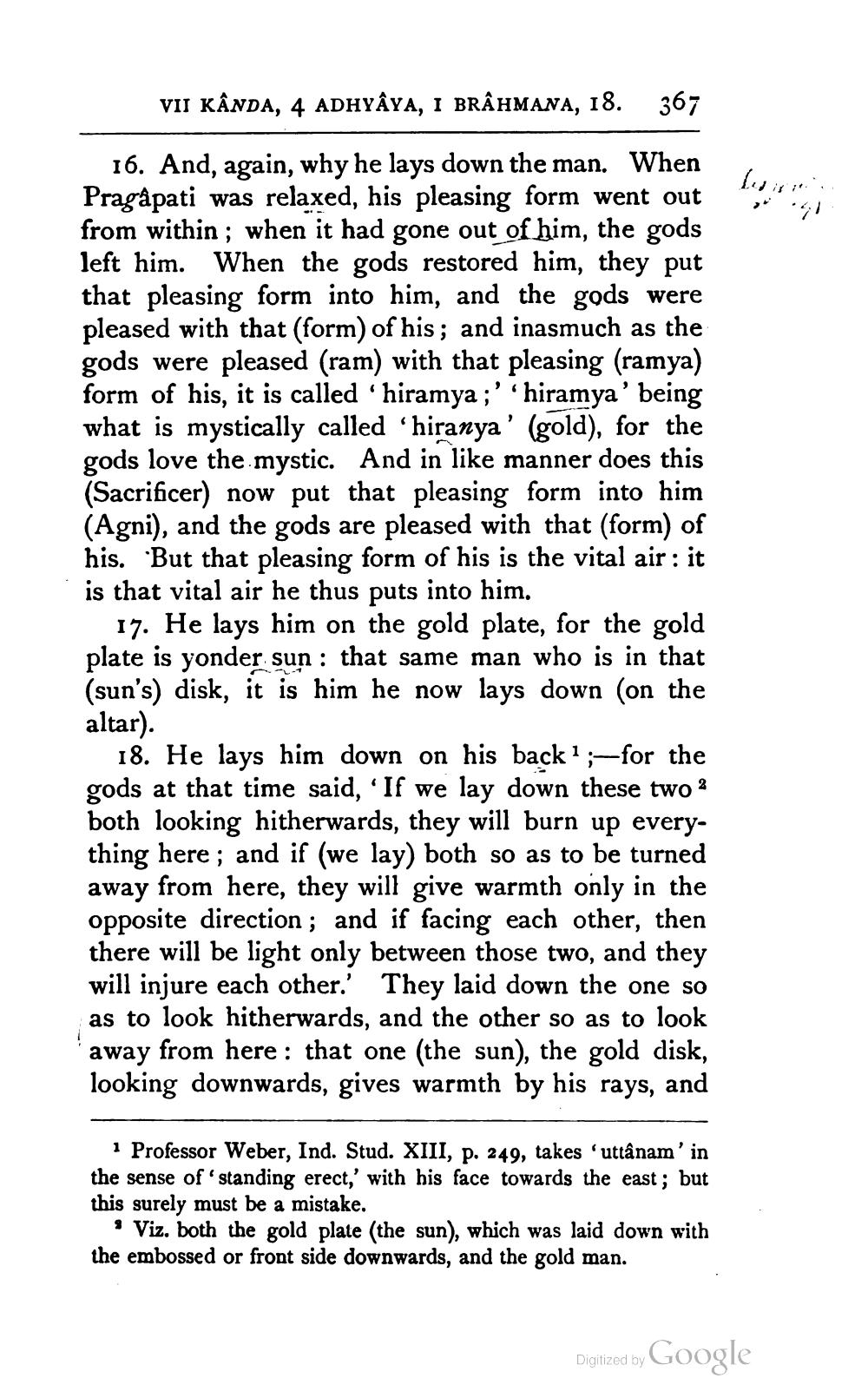________________
VII KÂNDA, 4 ADHYAYA, 1 BRÂHMANA, 18.
367
16. And, again, why he lays down the man. When Pragàpati was relaxed, his pleasing form went out from within ; when it had gone out of him, the gods left him. When the gods restored him, they put that pleasing form into him, and the gods were pleased with that (form) of his; and inasmuch as the gods were pleased (ram) with that pleasing (ramya) form of his, it is called 'hiramya ;'"hiramya' being what is mystically called 'hiranya' (gold), for the gods love the mystic. And in like manner does this (Sacrificer) now put that pleasing form into him (Agni), and the gods are pleased with that (form) of his. But that pleasing form of his is the vital air : it is that vital air he thus puts into him.
17. He lays him on the gold plate, for the gold plate is yonder sun : that same man who is in that (sun's) disk, it is him he now lays down (on the altar).
18. He lays him down on his back 1 ;-for the gods at that time said, If we lay down these two 2 both looking hitherwards, they will burn up everything here; and if (we lay) both so as to be turned away from here, they will give warmth only in the opposite direction; and if facing each other, then there will be light only between those two, and they will injure each other. They laid down the one so as to look hitherwards, and the other so as to look away from here: that one (the sun), the gold disk, looking downwards, gives warmth by his rays, and
1 Professor Weber, Ind. Stud. XIII, p. 249, takes uttânam' in the sense of standing erect,' with his face towards the east; but this surely must be a mistake.
• Viz. both the gold plate (the sun), which was laid down with the embossed or front side downwards, and the gold man.
Digitized by Google




